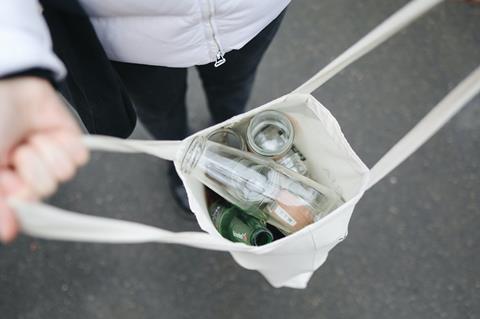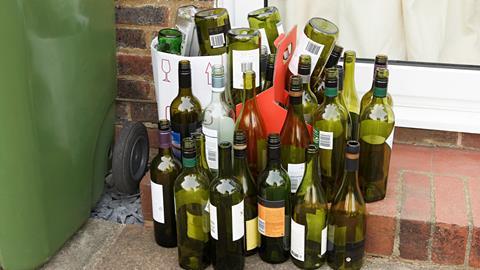Defra is once again looking at how it calculates extended producer responsibility (EPR) fees, it emerged today. Coming less than a week after the long-awaited first estimates were published, it doesn’t exactly bode well for a new dawn of decisiveness under Labour.
Since those estimates, the department has been holding frantic talks with industry and local authority bosses to try to explain its calculations. These figures were the first of what it hopes will be a series of progressively more accurate estimates before invoices start to drop through companies’ letterboxes in October next year.
Defra has already stressed those estimates will be beholden to Chancellor Rachel Reeves’ forthcoming spending review, so it was never a done deal.
But getting the basics of these calculations right is crucial for Labour and new environment secretary Steve Reed. After all, EPR lurched from one crisis to the next under the previous administration, as did its other flagship policy: DRS.
To avoid the same fate, Reed has started by vowing to set up a joint industry and government task force to accelerate the UK’s key net zero commitments. It looks like that taskforce will need all the weaponry it can get just to tackle EPR, judging by the reaction to last week’s figures – the glass industry being the first to shatter any illusion of consensus.
Glass backlash
With the base rates for glass estimated to be as high as £330 per tonne, British Glass warned that EPR would signal “large-scale redundancies” across the industry as producers switch to alternative materials carrying less “eye-watering charges”.
The British Beer & Pub Association screamed that charges would inevitably be passed on to consumers. It estimated the cost of a pint of beer – always a powerful message across the despatch box – would rise by 7p, totalling a whopping £200m plus per year.
Rising costs is hardly a theme Reed will want to embrace as he puts his stamp on Defra. It’s certainly not one that will be welcomed by Reeves, even if Defra confirmed this week it would be happy for 80% of the costs of EPR to be passed on to consumers. Unsurprisingly, Defra is leaving it to industry to decide how to communicate those cost increases with suppliers and those customers. One industry wag suggested invoices should refer to ‘government packaging taxes’.

That aside, the doubt cast over the estimates is worrying for Defra’s entire new system. The figures for glass were supposed to be the first produced by a new system of costs it is drawing up to cover all categories under EPR – as opposed to last week’s figures for other categories, which were based on estimates from Wrap.
In very simple terms, the system has whacked glass with huge fees because it is a heavy material. Defra is to hold meetings to discuss an alternative using volume as the key metric.
The fact that it is seemingly willing to dramatically change tack so quickly has astonished some in the industry, while others see it as a sign that it is listening to concerns and is prepared to take decisive action.
The real danger, though, is that the issues with glass are just a taste of things to come as discussions continue and the cost of EPR sinks in.
Once EPR gets up and running, Defra argues it will be much easier to dictate fees based on actual recycling figures and the amounts of material on the market, which will be recorded on a new online portal. Future costs will be made more sophisticated to match the relative environmental impact of different materials, it adds. But that all seems a very long way away, and the clock is ticking on Defra’s timetable.
Read more:
-
Defra agrees to reconsider ‘eye-watering’ EPR fees for glass
-
Defra reveals no plans by Labour to ‘fast-track’ DRS
-
EPR scheme base fees unveiled by Defra
Lack of data
The truth is that many companies that have been slow to register – literally and mentally – to EPR. Enormous numbers of large companies have still failed to engage, which is making the task of estimating the true costs a perilous minefield.
According to Defra’s latest figures, nearly 2,000 companies enrolled in the scheme have still failed to start reporting data, which has resulted in a busy time for the enforcement authorities.
As of 19 August, 4,950 large producers of the 6,860 obligated to the scheme had submitted their first sets of data. While better than the situation in the spring, it is still precarious, considering the timetable for rollout.
Perhaps a more powerful message than the risk of fines is that without the right data, Defra’s figures may continue to resemble a finger in the wind for some time, making economic planning for companies next to impossible.
As Defra is keen to stress, the figures it has produced so far are an estimate and will change.
But it’s absolutely vital that once September comes, when the next set of estimates are due, Defra provides figures that enable some semblance of planning. And while it’s good to know it’s listening, it can’t afford to keep chopping and changing direction – or else the cries from certain quarters for yet more delays to the rollout will only grow louder.




















No comments yet